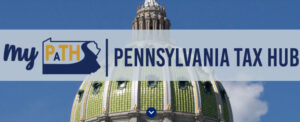Key Sales Tax Updates Affecting the Mid-Atlantic
As we all know, no region of the United States is immune from sales tax updates…
The world of sales tax is tedious, ever-changing, and practically impossible to keep up with on your own… especially if you make sales into multiple states!
To help those with business operations in the Mid-Atlantic or those who make sales into Mid-Atlantic states keep up, we’re putting a magnifying glass on some of the key recent sales tax changes.
Exemptions for Personal Hygiene and Products
Sales tax is often categorized as a fair tax. It’s up to the individual to decide how much they spend, and the amount they pay in sales tax increases based upon their decisions. However, there are some purchases that everyone must make to survive. This is why in the past it’s been normal for items like food products to be exempt from sales tax — due to their necessity. Personal hygiene and infant-related products are essential purchases for people and parents to make. So, for the same reason as food exemptions, states in the Mid-Atlantic region are opting for exemptions related to personal hygiene and infant-related products.
In July 2022, Maryland began exempting diapers and various other products related to infants and other personal care. All broad product categories included in the new exemptions are diapers and baby products, oral hygiene products, medical devices, and diabetic care products. These exemptions add on to the already exempt products for feminine hygiene. Further details regarding sales and use tax exemptions related to mother and infant care can be found here.
Virginia made the move to issue a bulletin discussing the state’s exemption for food purchased for human consumption and essential personal hygiene products at the same time. Effective January 1, 2023, Virginia’s 1.5% state level sales and use tax levied on food and essential personal hygiene products is eliminated. However, food and essential personal hygiene products will still be subject to select local tax rates. In Virginia, “essential personal hygiene products” refer to nondurable incontinence products such as diapers, disposable undergarments, pads, and bed sheets; and menstrual cups and pads, pantyliners, sanitary napkins, tampons, and other products used to absorb or contain menstrual flow.
States are seeing pressure to continue to equalize the tax burden between men and women. The “pink tax” movement has expanded over the past few years and many states now provide exemptions for feminine hygiene products. The newer initiates are aimed at infant products. Although these all have great personal support, it raises the question as to if this is the best tax policy approach. We will continue to see these questions raised.

The Spread of the Taxation of Services
While some items are becoming exempt, others are just beginning to be taxable!
Until recently, many services in the state of Kentucky were not subject to sales tax. But now, that has changed for services like hairstyling, tattooing, gym memberships, photography services, and much more. The state Department of Revenue has released guidance that breaks down how these changes will affect different industries and service providers and provides more clarity.
For example, when the new regulations for photography came into effect, charges for sitting fees, developing and printing photographs, and photo editing services were added to the tax base. The state has clarified that, under the new rules, charges for family portraits, wedding photography, and athletic pictures will now be subject to tax. Additionally, repairs and extended warranties, which are currently treated as bundled transactions, have become taxable. Repairs or alterations to apparel, footwear, watches, and jewelry are subject to tax regardless of the cost of the materials used. And extended warranty services, which are currently taxable if performed on taxable tangible personal property, will be taxable across the board, including warranties on exempt property and real property.
The list of changes to taxability of services in Kentucky goes on to include interior designing services, summer camps, and conference spaces. Kentucky is making these changes in exchange for reductions in the personal income tax. We are seeing similar efforts in other states.

Success for Amazon FBA Sellers
In the final months of 2022, out-of-state Amazon FBA participants whose only connection to Pennsylvania is merchandise stored in an Amazon warehouse experienced a very positive development. The Pennsylvania Department of Revenue had been trying to assess sales tax to these sellers, for periods pre-dating economic nexus and the Wayfair decision. The question revolved around whether the mere presence of inventory in the Amazon warehouse created substantial physical presence in Pennsylvania. A key factor in the case was that Amazon FBA participants do not have a say in where their items are held and at times are not even aware of where their inventory is located. A number of Amazon FBA sellers have been assessed sales tax going back to when the first Amazon warehouse was opened in the state. In 2021, a complaint was filed with the United States District Court for the Middle District of Pennsylvania stating that the DOR’s attempts to collect sales tax from the Guild members were a violation of their constitutional rights. The Commonwealth Court of Pennsylvania sided with the Online Merchants Guide and found that this activity was not substantial physical presence. Eventually, A Pennsylvania (DOR) spokesman stated that the DOR has chosen not to appeal the Commonwealth Court of Pennsylvania’s decision in this case.
This is a major step for Amazon FBA participants and might lead a similar quake in other states that also house Amazon FBA warehouses across the Mid-Atlantic and the United States as a whole.
This decision is a major win for Amazon FBA sellers for periods not just before economic nexus but even today. With a $100,000 economic sales threshold, small sellers using the Amazon FBA program will not have to register to collect sales tax until they exceed the threshold. And those that sell only on marketplace platforms may not need to register at all.

Pennsylvania Introduces New Online System
Pennsylvania is changing the way that taxpayers will electronically file sales and use and excise returns, make payments, and renew licenses, among other services. The state of Pennsylvania is transitioning from e-TIDES to their new version, myPATH. Taxpayers are no longer able to use e-TIDES to file returns or make payments. Instead, taxpayers will need to use myPATH to file many taxes including sales tax, employer withholding, and corporation taxes.
The goal of the new system is to have a more streamlined system for users and is part of a greater effort to improve customer service. The online portal for the Department of Revenue can be found at www.mypath.pa.gov.
Sales Tax Changes: Ever-Present in the Mid-Atlantic
These are just a handful of significant recent sales tax developments in the Mid-Atlantic region. Keeping up with all of the changes and updates is no easy feat, but it’s critical if you want your company to stay sales tax compliant in the Mid-Atlantic. One missed change can have a huge impact!